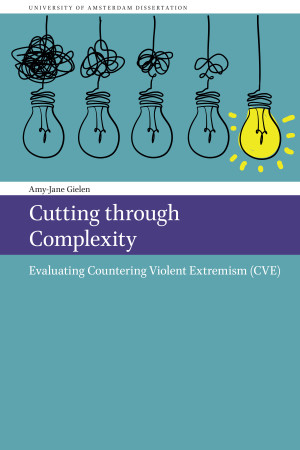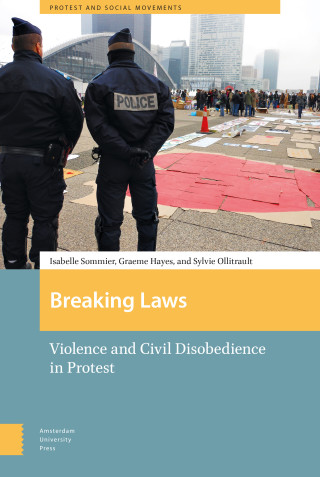
Amy-Jane Gielen
Cutting through Complexity
Evaluating Countering Violent Extremism (CVE)
Programmes and interventions to counter violent extremism (CVE) have become widespread across Europe. CVE is a relatively new and very complex phenomenon. The term itself has become a - contested - catch phrase for a broad array of interventions targeting different populations at different stages in the radicalization process. The complexity of CVE has resulted in a serious lack of evaluations in the field. Those few evaluations that we can draw upon are very heterogeneous, both in terms of evaluation method and the type of interventions that they address. It is therefore impossible to make any grounded statements on the effectiveness of CVE. Academia thus has little theoretical basis for adequately advising the policy and practitioner community on the best course of action.
We are thus in need of an evaluation method that can accommodate the complexity of CVE, while providing an authoritative basis for new evaluations and at the same time exposing incorrect or too limited, normative assumptions in CVE policy. We also require a 'meta-analysis' method for synthesizing the variety of evaluations available to produce generic insights.
This study applies and further develops realistic evaluation and realist review to provide an evaluation and synthesis method for complex social programmes such as CVE. The end result is heuristic development of the realistic evaluation method which provides a basis for future CVE evaluation studies. The dissertation also provides insights on relevant contexts and mechanisms in CVE, which will help policymakers further develop their CVE programmes.
Author
- Title
- Cutting through Complexity
- Subtitle
- Evaluating Countering Violent Extremism (CVE)
- Author
- Amy-Jane Gielen
- Price
- € 41,95
- ISBN
- 9789085551225
- Format
- Paperback
- Number of pages
- 230
- Language
- English
- Publication date
- 03 - 03 - 2020
- Dimensions
- 15.6 x 23.4 cm
1 Introduction
2 Countering Violent Extremism: A Realist Review for Assessing What Works, for Whom, in What Circumstances and How?
3 Lessons from a Realist Review of Countering Violent Extremism: Development of Refined Heuristic Guidelines for Complex Social Programmes
4 Supporting Families of Foreign Fighters: A Realistic Approach for Measuring Effectiveness
5 Exit Programmes for Female Jihadists: A Proposal for Conducting a Realistic Evaluation of the Dutch Approach
6 Evidence-based Informed Policy Design for Support Groups for Families of Foreign Fighters: Ex Ante Application of Realistic Evaluation and Review
7 Conclusion
References
Author contributions and publications
Summary Cutting through Complexity. Evaluating Countering
Violent Extremism (CVE)
Nederlandse samenvatting
Dankwoord




